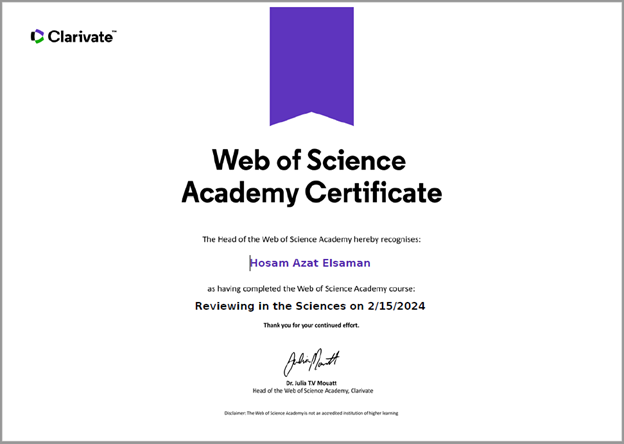Human capital as a driver of sustainable development in Azerbaijan
DOI:
https://doi.org/10.15549/jeecar.v9i6.1199Keywords:
Human capital, Azerbaijan, sustainable development, sustainable development goals, ecology, economy, social developmentAbstract
The article's purpose is to empirically substantiate the impact of human development (HC) on the sustainable development of Azerbaijan in current conditions. Using the principal component method, we have determined the components of HC (a factor of professional development, health status, availability of labor force, financial activation of human potential) and sustainable development (low-tech economic development, medium and high-tech economic, environmental, and social development. Regarding the assessment of the influence of the HC components on sustainable development in Azerbaijan, we used the methods of linear and non-linear regression models. A differentiated nature of the effect of the HC components on sustainable development has been established, depending on the state of health of the population, on the level of technological effectiveness of the economy. It has been substantiated that the driver of sustainable development is the qualitative rather than the quantitative component of HC.
References
ABC.az. (2022). A number of Azerbaijani citizens living below the poverty line were unveiled. http://abc.az/en/news/105090
Addison, T. & Roe, A. (2018). Extractive Industries. The Management of Resources as a Driver of Sustainable Development. https://goo.su/dIJl DOI: https://doi.org/10.1093/oso/9780198817369.001.0001
Aslanli, K. (2015). Fiscal sustainability and the State Oil Fund in Azerbaijan. Journal of Eurasian Studies, 6, 2, 114-121. https://doi.org/10.1016/j.euras.2015.03.004 DOI: https://doi.org/10.1016/j.euras.2015.03.004
Çakar, N.D., Gedikli, A., Erdo?an, S., & Y?ld?r?m, D.Ç. (2021). Exploring the nexus between human capital and environmental degradation: The case of EU countries. Journal of Environmental Management, 295, 113057. https://doi.org/10.1016/j.jenvman.2021.113057 DOI: https://doi.org/10.1016/j.jenvman.2021.113057
Caspian News. (2022). Azerbaijan Intends to Reach Multi-Billion Non-Oil Trade Volume with EU. https://goo.su/Ccg6i3
EU Reporter. (2021). Azerbaijan keeping strong in achieving '2030 Agenda' in South-Caucasus despite challenges. https://goo.su/d41rw
Gautam, R., Reining, A., & Holasek, K. (2017). Analyzing the Gender Disparity in Education between Developed and Developing Countries. https://goo.su/a4XDs
Gulaliyev, M.G., Muradov, R.S., Hajiyeva, L.A., Muradova, H.R., Aghayeva, K.A., & Aliyev, E.S. (2019). Study of Human Capital Development, Economic Indicators and Environmental Quality. Ekoloji, 28(107), 495-503.
Interfax. (2022). Azerbaijan to boost gas exports to Europe 40% in 2022 to 11.5 bcm - Energy Ministry. https://interfax.com/newsroom/top-stories/83282/
Levytska, O., & Romanova, A. (2020). Assessment of the impact of government expenditure on environmental protection on the GDP in the context of environmental legislation. Journal of Eastern European and Central Asian Research (JEECAR), 7(3), 375-384. https://doi.org/10.15549/jeecar.v7i3.342 DOI: https://doi.org/10.15549/jeecar.v7i3.342
Megits, N., Aliyev, S. T., Pustovhar, S., Bielialov, T., & Prokopenko, O. (2022). The «Five-Helix» Model as an effective way to develop business in Industry 4.0 of selected countries. Journal of Eastern European and Central Asian Research (JEECAR), 9(2), 357-368. https://doi.org/10.15549/jeecar.v9i2.920 DOI: https://doi.org/10.15549/jeecar.v9i2.920
Menke, W. (2018). Factor analysis. In Geophysical data analysis (pp. 207–222). Academic Press. https://doi.org/10.1016/B978-0-12-813555-6.00010-1 DOI: https://doi.org/10.1016/B978-0-12-813555-6.00010-1
Mordor Intelligence. (2022). Azerbaijan Oil and Gas Upstream Market - Growth, Trends, Covid-19 Impact, and Forecasts (2022-2027). https://goo.su/zWEb
Ouedraogo, I., Ngoa Tabi, H., Atangana Ondoa, H., & Jiya, A.N. (2022). Institutional quality and human capital development in Africa. Economic Systems, 46, 1, 100937. https://doi.org/10.1016/j.ecosys.2021.100937 DOI: https://doi.org/10.1016/j.ecosys.2021.100937
President of the Republic of Azerbaijan. (2022). President of Azerbaijan, Prime Minister of Georgia, made press statements. https://president.az/en/articles/view/57676
Sahiti, A., Alshiqi, S., Neskorodieva, I., Sahiti, A., & Bekteshi, X. (2022). Managing Credit Risk Strategies for Commercial Banks: The Case of Kosovo. Journal of Eastern European and Central Asian Research (JEECAR), 9(2), 309-318. https://doi.org/10.15549/jeecar.v9i2.847 DOI: https://doi.org/10.15549/jeecar.v9i2.847
Sharpe, A. (2011). Is Ageing a Drag on Productivity Growth? A Review Article on Ageing, Health, and Productivity: The Economics of Increased Life Expectancy," International Productivity Monitor, Centre for the Study of Living Standards, 21, 82-94, Spring.
Sultana, T., Dey, S. R., & Tareque, M. (2022). Exploring the linkage between human capital and economic growth: A look at 141 developing and developed countries. Economic Systems, 46, 3, 101017. https://doi.org/10.1016/j.ecosys.2022.101017 DOI: https://doi.org/10.1016/j.ecosys.2022.101017
Sustainable Development Report. (2022). https://dashboards.sdgindex.org/rankings
The State Statistical Committee of the Republic of Azerbaijan. (2022). https://www.stat.gov.az/?lang=en
The World Bank. (2022a). Human Capital Project. https://www.worldbank.org/en/publication/human-capital#Index
The World Bank. (2022b). https://data.worldbank.org/
United Nations Development Programme. (2022). Gender Inequality Index (GII). https://goo.su/dzZcqC
United Nations Economic Commission for Europe. (2020). Sub-regional Innovation Policy Outlook 2020: Eastern Europe and the South Caucasus. https://goo.su/F0RxiXX
United Nations. (2022a). The 17 goals. https://sdgs.un.org/goals
United Nations. (2022b). Transforming our world: the 2030 Agenda for Sustainable Development. https://sdgs.un.org/2030agenda
Vasiljeva, M., Neskorodieva, I., Ponkratov, V., Kuznetsov, N., Ivlev, V., Ivleva, M., Maramygin, M., & Zekiy, A. (2020). A Predictive Model for Assessing the Impact of the COVID-19 Pandemic on the Economies of Some Eastern European Countries. Journal of Open Innovation: Technology, Market, and Complexity, 6(3), 92. https://doi.org/10.3390/joitmc6030092 DOI: https://doi.org/10.3390/joitmc6030092
Yeh, L.-T., Tseng, M.-L., & Lim, M.K. (2020). Assessing the carry-over effects of both human capital and organizational forgetting on sustainability performance using dynamic data envelopment analysis. Journal of Cleaner Production, 250, 119584. https://doi.org/10.1016/j.jclepro.2019.119584 DOI: https://doi.org/10.1016/j.jclepro.2019.119584
Downloads
Published
How to Cite
Issue
Section
License
The JEECAR journal allows the author(s) to hold the copyright and publishing rights of their own manuscript without restrictions.
This journal applies the Creative Attribution Common License to works we publish, and allows reuse and remixing of its content, in accordance with a CC-BY 4.0 license.
Authors are free to: Share — copy and redistribute the material in any medium or format and Adapt — remix, transform, and build upon the material for any purpose, even commercially.
Under the following terms: Attribution — You must give appropriate credit, provide a link to the license, and indicate if changes were made. You may do so in any reasonable manner, but not in any way that suggests the licensor endorses you or your use.
No additional restrictions — The author may not apply legal terms or technological measures that legally restrict others from doing anything the license permits.
The JEECAR Journal is committed to the editorial principles of all aspects of publication ethics and publication malpractice as assigned by the Committee on Public Ethics.












